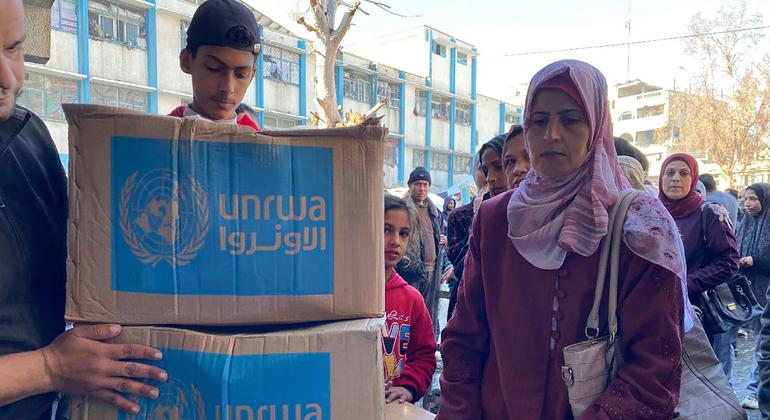Here’s the translation into American English:
—
UN agencies have denied allegations regarding the possible diversion of humanitarian aid in Gaza to Hamas, a justification used by Israel to implement its control plan over the distribution of that assistance. Margaret Harris, spokesperson for the World Health Organization, stated that there is no evidence of any diversion and that supplies are reaching the relevant health centers properly. Harris indicated that the main obstacle remains the restrictions affecting the effective arrival of aid.
Regarding the recent announcement by the United States about creating a new foundation to distribute humanitarian assistance in Gaza, representatives from UN agencies emphasized that they will not participate in any scheme that does not respect the principles of neutrality and independence. Rolando Gómez, a UN spokesperson, stressed that their position remains firm in adhering to its fundamental principles.
James Elder, UNICEF spokesperson, warned that the measures proposed by Israel will only increase the suffering of civilians. He highlighted that it is extremely dangerous for the population to move towards militarized areas in search of rations, adding that the most vulnerable, such as the elderly and disabled children, will face serious difficulties in accessing assistance.
A UN Special Committee warned that the current situation could be compared to another Nakba after concluding its mission in Jordan. They mentioned the suffering that the Palestinian people endure under Israeli occupation, as well as the increase in land confiscation, which evidences a systematization of torture and other abuses perpetrated by Israeli forces.
This Committee also stated that Israel is using the right to food as a weapon, considering it inconceivable for a government to implement policies aimed at depriving its population of food, especially when assistance is available just a short distance away. They called on influential countries to pressure Israel to end its illegal actions.
On another note, UNHCR has reported facing serious limitations in assisting Nicaraguans seeking protection in Costa Rica due to a 41% reduction in its funding. This situation has led to the suspension of many essential services, complicating humanitarian access in remote communities. By March 2025, Costa Rica had received over 194,000 Nicaraguan asylum seekers, and the capacity to register new applicants has been drastically reduced.
In Colombia, a report from the Office for the Coordination of Humanitarian Affairs revealed that the number of people displaced by violence has quadrupled in the first quarter of 2025 compared to the same period last year. The crisis of forced displacement and limitations on access to basic services have had devastating consequences in vulnerable regions, especially along the Venezuela border and in the Chocó department.
Referrer: MiMub in Spanish










